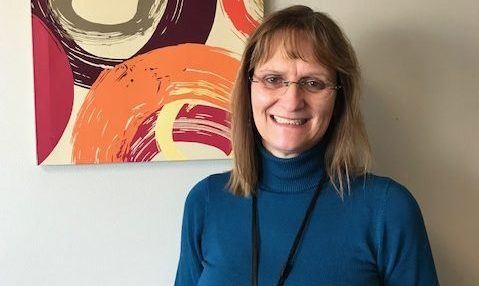
Trina Ford was already a nurse practitioner when she started to recognize that addressing patients’ mental health issues could improve their physical health.
“When we controlled their depression, it was also easier for them to manage their diabetes. Their blood pressures went down,” Ford says.
Her work as a care coordinator in Rhinelander showed the need for providers focused exclusively on mental health. She decided to go back to school, but required a flexible program that would allow her to continue working at the same time.
The University of Wisconsin-Madison Psychiatric Mental Health Certificate was the perfect solution.
An 18-month capstone certificate for licensed registered nurses with a master’s degree focused on role preparation as an advanced practice nurse, the program blends online learning with in-person classes and clinical experience. Two trips to Madison per month are required for on-campus classes, making the certificate accessible to those who live even several hours away. Students learn to deliver complex diagnoses, expand their knowledge of psychiatric nursing methods, and improve the care of psychiatric patients. The UW-Madison program has a 100 percent board certification pass rate.
At home with clinical training
What really made the program possible for Ford was that it arranged the time-intensive clinical rotations at sites throughout Wisconsin so that she could learn close to home. There are currently 60 clinical sites across the state available to students.
“There was no other way I could do it,” Ford says.

The program’s emphasis on clinical placements in rural and other underserved areas represents an effort to better meet mental health needs throughout Wisconsin. The majority of the state’s counties are designated by the U.S. Department of Health as Health Professional Shortage Areas for mental health care, meaning they lack sufficient providers to meet the needs of the population.
Professor Gina Bryan, who directs the certificate program, says rural clinical placements make it possible to recruit students like Ford, who would not have attended had the program required her to relocate or commute to Madison multiple times a week.
“The need [for mental health providers] is huge everywhere, but especially great in more remote communities,” Bryan says. “We know that those with more experience and established lives often want to remain and build a practice in their home communities. We want to enable them to learn in their home communities, too.”
Learn more about the Psychiatric Mental Health Certificate. Application opens in early September; applications are due December 1.